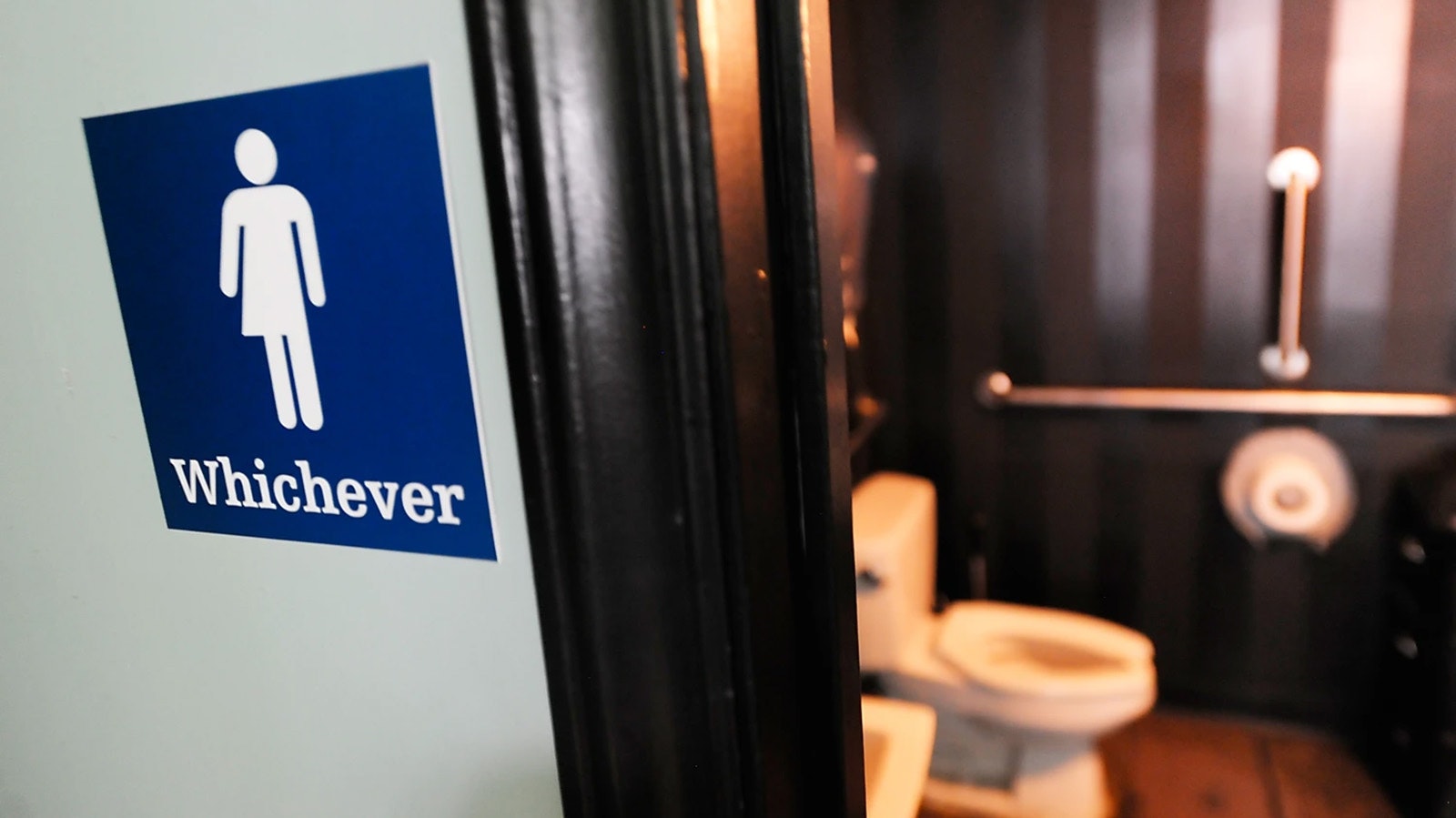Faced with the prospect of fighting President Joe Biden’s newly codified rule expanding provisions favorable to transgender people in schools, Wyoming is reviewing its litigation strategy.
“Wyoming will fight any national attempt to erode our traditional values, and Governor (Mark) Gordon rejects the imposition of moral standards from Washington, D.C.,” says a statement the governor’s office sent Tuesday to Cowboy State Daily.
The statement points to two parental rights laws Wyoming passed in recent weeks, and says the federal Department of Education’s update to the federal Title IX rules clash with both the concept of parental rights and of local, school-board driven control.
The department finalized the rules April 19, to go into effect in August. Proponents say these rules enshrine transgender rights, while opponents say they diminish protection for others, including females.
“School policies related to gender identity are best decided by parents and local school boards,” Gordon’s statement says, adding, “We are currently reviewing our litigation strategy on the issue.”
Other States Already Fighting
Officials in several Republican-led states are now suing to block the Title IX expansion, MSNBC reported.
Texas Attorney General Ken Paxton, who sued the department Monday, said the rules mandate compliance with radical gender ideology and upend decades of protections for women by including “one’s self-professed ‘gender identity’” in its scope.
“The Biden administration has exceeded its authority and radically distorted the meaning intended by Congress when the law was made,” says a Monday statement by Paxton.
Louisiana, Mississippi, Montana Idaho, Alabama, Florida, Georgia, Tennessee, West Virginia, Kentucky, Indiana, Ohio, Virginia and South Carolina are also suing so far, according to media reports.
Back In 2021
Biden’s U.S. Department of Education first proposed to include “sexual orientation” and “gender identity” within the term “sex” in Title IX’s ban on sex discrimination via informal agency guidance back in 2021, the year he became president.
In response, 20 states filed a federal lawsuit, and a federal judge blocked the department from enforcing the new guidance in those states.
That case is ongoing in the 6th Circuit Court of Appeals.
Wyoming did not join the plaintiff states, reportedly because it had no state laws conflicting with the new guidance at the time.
Afterward, the Wyoming Legislature passed a 2023 law banning males from girls’ public interscholastic sports in grades 7-12. The new Department of Education rules don’t specifically mention transgender athletes, but they issue a blanket ban on discrimination pertaining to gender identity, as well as sexual orientation.
Perhaps matching the rules’ silence in that area, Gordon’s statement does not cite the interscholastic sports law as a means to litigation, but rather the two parental rights statutes the Legislature passed this year, which are both geared toward schools.
First, Degenfelder
Wyoming Superintendent of Public Instruction Megan Degenfelder dispatched a statement condemning the rule change the day after it was finalized, saying she was outraged at the Biden administration’s “action to effectively repeal Title IX protections for women in America.”
She said the rules open the door to males abusing rights Title IX has historically afforded to women, and can remove parents from discussions around a child’s gender identity.
“Quite frighteningly, the rules have stripped the accused of proper due process protections and threaten First Amendment rights,” Degenfelder added.
That’s a fear numerous public commenters also voiced during the rules’ formation, saying the new ban on gender identity-related “sex-based harassment” could chill speech, smother academic freedom and stifle the exchange of ideas.
For example, many detractors fear the rules will outlaw misgendering — calling someone by a pronoun he or she does not prefer — as harassment.
The federal Department of Education disagrees with these comments, saying the new rules are constrained by the First Amendment and its body of case law.
“Although the First Amendment may in certain circumstances constrain the manner in which a recipient responds to sex-based harassment in the form of speech, recipients have ample other means at their disposal to remedy a hostile environment,” says the federal department’s unofficial final rule document.
Schools are free to decide whether and how to discipline people who commit gender-identity-based harassment, the document adds.
Department May Be Able To Go Through The First Amendment …
The federal department also says it has a “compelling government interest” in preventing discrimination.
Showing a compelling government interest is the first step a governmental agency must take if it wants to abridge a fundamental right, like the freedom of speech. The second step is applying that abridgement in the most narrowly tailored way to achieve its interest.
The document also claims these new rules are narrowly tailored. In other words, the new rules insist that they are crafted well enough, and upon such a compelling need, as to work around the First Amendment.
A Little Law
Biden’s Title IX revision attempts, of which the finalized rules are the latest, draw from a U.S. Supreme Court expansion of a different area of federal law, Title VII, which applies to the workplace.
Bostock v. Clayton County is a 2020 landmark case in which the high court determined that a Title VII ban on “sex” discrimination also bans sexual orientation- and gender identity-based discrimination. The ruling came in response to a man who argued he was fired for being gay.
When plaintiffs challenge the federal government’s attempted Title IX expansions, the arguments often reference differences or similarities in the language, the legislative context, and the historical applications of the two different laws.
Clair McFarland can be reached at clair@cowboystatedaily.com.





